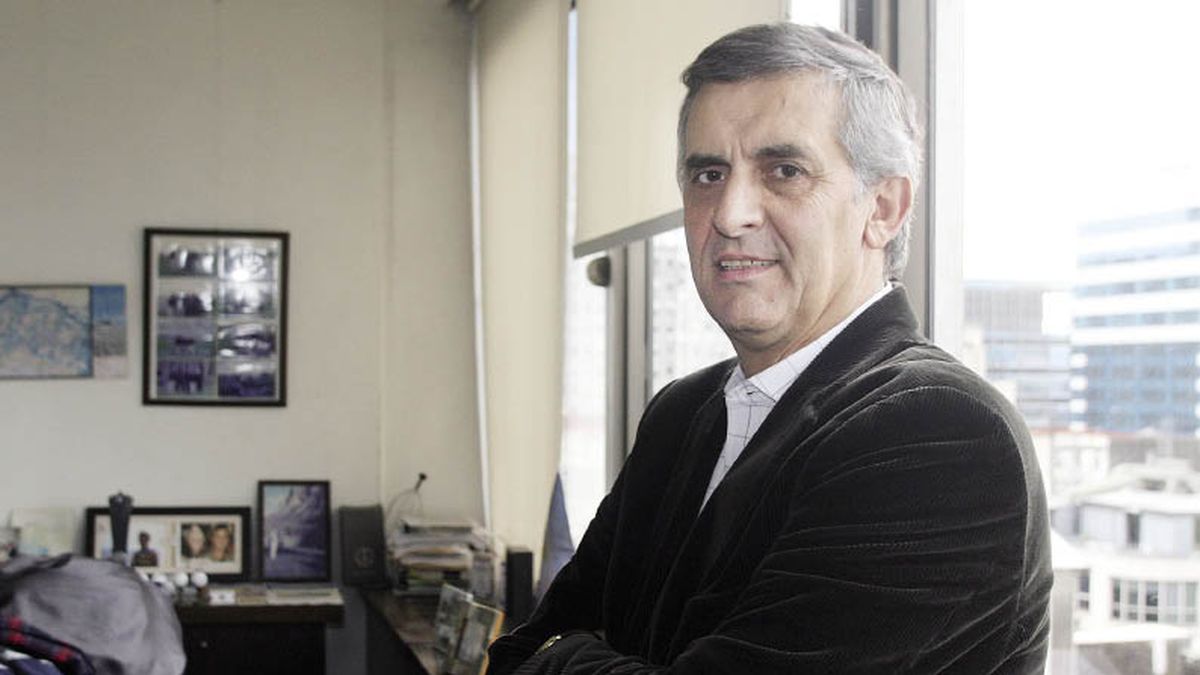Below are the main concepts of the talk he had with Ámbito:
Journalist: How do you analyze the understanding that the Government reached with the IMF?
Rodolfo Santangelo: If confirmed, it is better to have it than not to have it. Having access to disbursements to pay the Fund is better than going into arrears or default. In return comes an economic policy in which the two parties have privileged their ideological prejudices.
Q: Why?
RS: The Ministry of Economy has imposed or has achieved that the fiscal correction is relatively low, if what is announced is confirmed. Especially in 2022 there is practically nothing, which does not mean that it will be easy because it will still require an issue of subsidies and tariffs that is more important than what is being announced.
Q.: And what did the Fund achieve with this?
RS: On the Fund side, I think it has negotiated a very tough monetary policy, with very little monetary financing of the fiscal deficit, which would force the Treasury to resort to debt and raise the interest rate.
Q.: What do you think of this mix of policies?
RS: It is not the combination that I like the most, but it is the one we have and obviously the outcome is going to come on the side of reserves and see if with this the foreign exchange market can be reassured, at least that it remains neutral, hand in hand with a year in which the external sector paints as very fair.
Q.: Can’t it be said that although the IMF allows little fiscal adjustment, on the other hand it forces monetary policy?
RS: It is a relatively loose fiscal policy versus a relatively tight monetary policy. Saving the distances is the same as the beginning of the government of Mauricio Macri, soft fiscal policy with hard monetary policy. I believe that it is better to have a hard fiscal policy with a soft monetary policy. The IMF managed to preserve its monetary catechism and the government its fiscal catechism.
Q.: In your opinion, what would be the most complicated fiscal correction to carry out?
RS: Some very sensitive issues are coming. Of these, I believe that public tariffs is the most important. Now public hearings are being called for electricity and gas. We have to see what increases result. It is impossible to lower subsidies without raising rates.
Q.: How can this program turn out?
RS: This is a type of program that in the long run is going to end up like in 2018 and 2019, even though we are now with exchange controls and not at that time, with a higher inflation rate than both parties want because it is the that ends up doing the dirty work that economic policy does not want to do.
Q.: If the IMF forces to apply a strong monetary restriction, will Guzmán be able to obtain financing in the local market?
RS: The local market is very small. I always say that it is like putting an elephant in a glassware. A size of fiscal deficit for international parameters is not so high, for the local market it is gigantic.
Q.: There are some economists who argue that it is not clear whether the IMF will allow a future return of Special Drawing Rights to be accounted for in reserves. What is your opinion?
RS: For the IMF, SDRs are liabilities. They are gross reserves, but they are not net reserves. All this will depend on the final number that ends up being negotiated. I believe that regardless of how it is defined, this is going to generate an increase in gross reserves. But I would say two more things in this regard: the foreign exchange market must have a positive balance, even if it is minimal, and refinancing must be achieved for the payment of the debt of organizations.
Q.: Is it possible to have a positive exchange market?
RS: In the IMF model, the positive exchange market is achieved from the monetary restriction. If the monetary restriction is very strong, in the long run, the demand for dollars goes down, but it is the most difficult thing to achieve.
Q.: There are economists who suggest that this agreement is for two years and that in any case, if there is a government of another political sign in 2023, it will be negotiated again. Could that be happening?
RS: I think you have to distinguish two things. One of them is the macroeconomy itself. In two years the maturities of the bonds that Guzmán renegotiated begin to fall, and by then it will be better for Argentina to have access to the capital markets again, because otherwise the repayment capacity will be very difficult. The Fund is apparently going to take longer because there will be a four-year grace period. But it is true that if you spend your time kicking maturities, it’s like you stay your whole life to live with the Fund.
Q.: Will the IMF be able to be paid with this type of program?
RS: Argentina returned the large packages with the IMF through exceptional mechanisms. They were the privatizations and Menem’s bonds and Néstor Kirchner’s soybeans. Those packages, which were much inferior to the current ones, AND were returned with extraordinary resources. Now there is no magnitude of funds to repay.
Q.: Can the political context influence something then?
RS: Of course it influences. I am not one of those who believe that everything depends on politics, but it does have an influence. It seems to me that in Congress there will be fireworks but there will end up being a formal approval. I think that with the Fund board there will also be fireworks, but in the end there will be an approval. But I think that the political context is going to influence when making decisions and the first thing is going to be the tariff increase.
Q.: It can be said that there would be no problems approving the agreement, but later…
RS: I think there will be noise, a tug of war, but I would be very surprised if the irresponsibility of stopping it from now on is committed.
Source: Ambito
David William is a talented author who has made a name for himself in the world of writing. He is a professional author who writes on a wide range of topics, from general interest to opinion news. David is currently working as a writer at 24 hours worlds where he brings his unique perspective and in-depth research to his articles, making them both informative and engaging.




